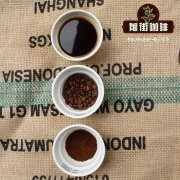How to drink the local Ethiopian native coffee?

Professional coffee knowledge exchange more coffee bean information please follow the coffee workshop (Wechat official account cafe_style)
When the whole world is a crazy geisha Geisha, Ethiopia has born a very powerful coffee in recent years, called Bouchabel-Peony. In 2016 and 2017, it won the championship of Ethiopia's domestic competition tanning group with this bean, and won the African championship of the all-African regional coffee competition in 2018. Recently, China was named after the Edo era prostitute "Sakuran". The bean hunter tested the bean in the cup like opening a perfume bottle to take a sip, and it tasted like chewing wild ginger petals, so the bean was nicknamed "Peony" after the king of flowers.
Bucha Abelle "Peony"
Coffee, with a very unique floral aroma and a saturated lotus rake, litchi, sweet peach, full of fresh camellias, full of floral aroma and sweetness, such a comfortable flavor. If you really need a loud nickname, you will use "Peony" as an alias, which is also the extremely elegant and elegant flavor after drinking this coffee. The king of flowers is well-deserved.
Bucha, Belle. Ethiopia's local language means "NEW". In this ancient country with a population of more than two thousand years, it blocks the road to Asia through the Great Rift Valley of East Africa, but new virgin land is still found waiting to be developed on this plateau from time to time. Compared with the millennium culture, this is quite a newly developed land.
Native coffee in the pristine deep forest
Bucha Abel is a small village called by the primitive forest tribe, which is extremely high in the Hambela area of Guji district, located in the southeast of Ethiopia, with a population of about 30,000. this small village is like most Ethiopian coffee gardens, growing up in wild primeval forests, where coffee farmers have passed on from generation to generation and grow native bananas. The native coffee trees are interspersed and planted in the banana forest. Most of the village is owned by the DEMSE family, and cattle, sheep and horses are raised in the original forest.
Coffee gene bank
Ethiopia, the earliest birthplace of coffee in the world, is also known as the worldwide coffee gene bank, where there are many unknown coffee varieties and very special flavors. The local coffee association collectively calls these native coffee Heirloom. During the coffee visit, I was always very excited to see the different growth posture and bean shape of these native species. This time, because she grew up at a high point of 2300m in GUJI, the air was cool and cold, so the bean was small and looked like a little mocha. The beans were very hard. When heated to 190 degrees, the explosive aroma produced by the explosion was very unrestrained, and the little beans were pregnant with a lot of energy.
END
Important Notice :
前街咖啡 FrontStreet Coffee has moved to new addredd:
FrontStreet Coffee Address: 315,Donghua East Road,GuangZhou
Tel:020 38364473
- Prev

The yield of Arabica Coffee Bean in Yunnan Province of China the advantages and disadvantages of Yunnan small-grain coffee bean flavor
Professional coffee knowledge exchange more coffee bean information please follow the coffee workshop (Wechat official account cafe_style) China's Arabica coffee beans, Yunnan Province, more than 90%, almost said that Yunnan coffee is Chinese coffee. The advantage of this producing area is that it has a mountainous area at an altitude of 800-1850.
- Next

What are the flavor characteristics of Brazilian coffee? what should Brazilian coffee do to taste good?
Professional coffee knowledge exchange more coffee bean information Please follow the coffee workshop (Wechat official account cafe_style) Brazil has low acidity, good balance and mellowness, which is acceptable to those who receive coffee for the first time. Brazilian coffee is distinguished by five flavors. Brazilian coffee focuses on the mellow thickness and sweetness of beans, which are smooth and tasty as a whole, so they are distinguished by five fractions.
Related
- Detailed explanation of Jadeite planting Land in Panamanian Jadeite Manor introduction to the grading system of Jadeite competitive bidding, Red bid, Green bid and Rose Summer
- Story of Coffee planting in Brenka region of Costa Rica Stonehenge Manor anaerobic heavy honey treatment of flavor mouth
- What's on the barrel of Blue Mountain Coffee beans?
- Can American coffee also pull flowers? How to use hot American style to pull out a good-looking pattern?
- Can you make a cold extract with coffee beans? What is the right proportion for cold-extracted coffee formula?
- Indonesian PWN Gold Mandrine Coffee Origin Features Flavor How to Chong? Mandolin coffee is American.
- A brief introduction to the flavor characteristics of Brazilian yellow bourbon coffee beans
- What is the effect of different water quality on the flavor of cold-extracted coffee? What kind of water is best for brewing coffee?
- Why do you think of Rose Summer whenever you mention Panamanian coffee?
- Introduction to the characteristics of authentic blue mountain coffee bean producing areas? What is the CIB Coffee Authority in Jamaica?

